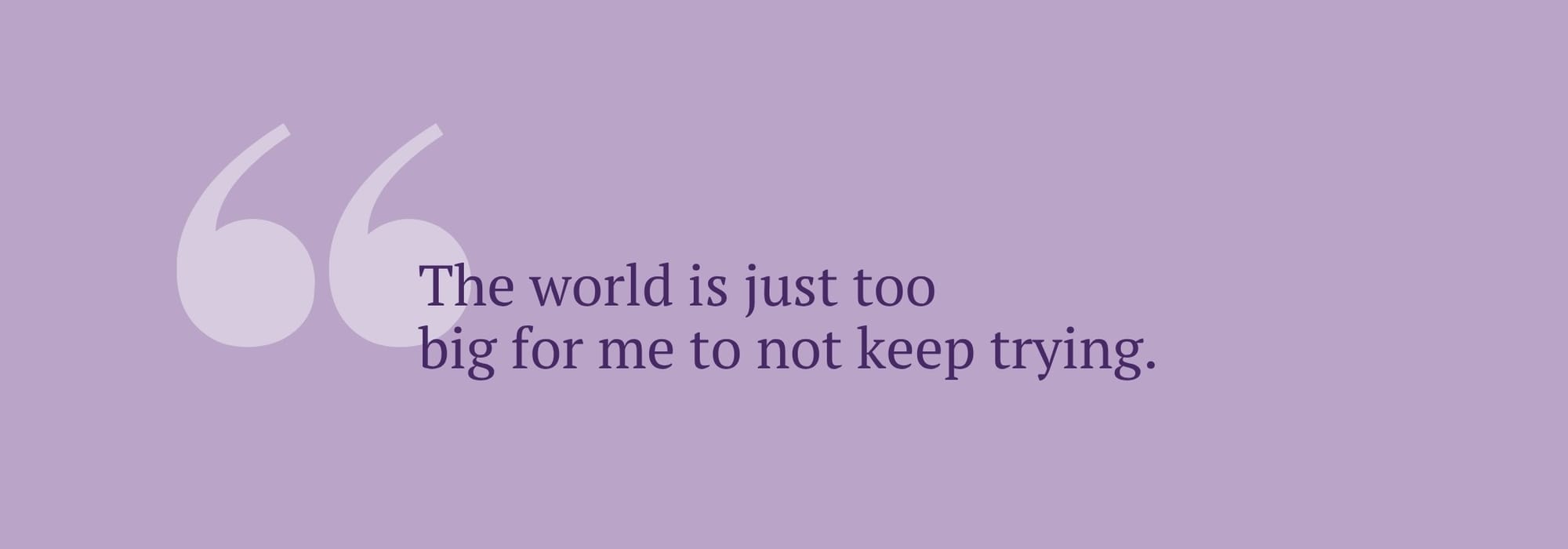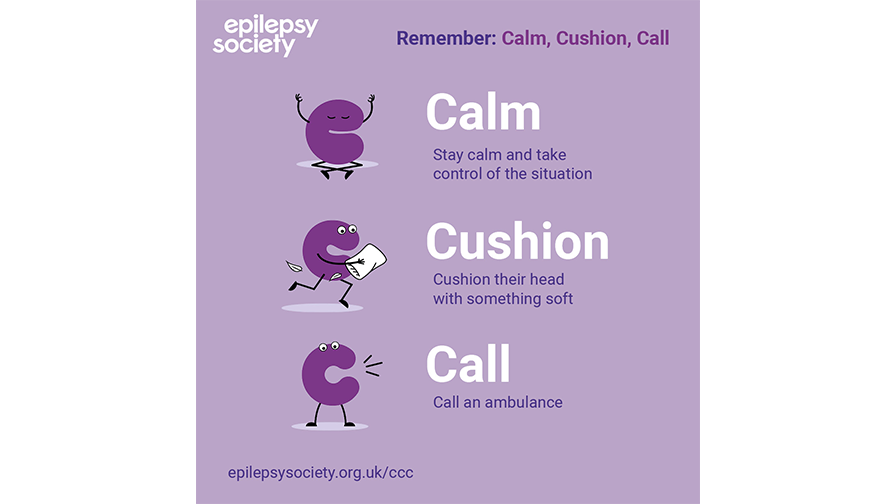How an epilepsy diagnosis can affect mental health
“My family hadn’t heard about epilepsy before – we didn’t know it was a thing until we went to the hospital,” recalls Patience Dengure, from Huddersfield. “All I knew when I was diagnosed was that when a seizure happened, I was completely blacking out, and whatever was happening to me was very painful.”
Aged just 14, Patience joined the ranks of the 630,000 people in the UK living with epilepsy, a condition that affects the brain and causes frequent seizures.
While the NHS notes that it’s a common neurological condition, myths about epilepsy persist, from the incorrect assumption that all seizures involve jerking or shaking movements, to the false perception that all seizures are triggered by flashing lights.
One of the most harmful misconceptions is that epilepsy only impacts the physical health of those who have it. In reality, epilepsy can have a major impact on mental and emotional health too, with a 2018 study by the University of Manchester and Swansea University highlighting that people with epilepsy had a three-fold increased risk of ‘unnatural mortality’.
“Many people with epilepsy also experience anxiety and depression. This can be as part of the condition itself, or it can be a result of the diagnosis and how that affects their life,” says Nicola Swanborough, head of external affairs at the Epilepsy Society. “People often worry about having a seizure in a public place, and consequently avoid going out. That, in turn, can lead to anxiety. And some anti-seizure medications can cause mood swings and irritability.”
Such feelings can also be a symptom of the seizure itself. A 2021 study, published in Seizure, revealed that 53% of people with focal epilepsy experience anticipatory anxiety of epileptic seizures (AAS), which can consist of “fear, dread, or excessive worry of having a seizure”. In others, feeling irritable, anxious, depressed, or aggressive may act as a warning sign that a seizure is going to happen soon.
“This is why it is so important for people to understand that epilepsy is more than just seizures, and for them to know how to support someone during a seizure with our simple seizure first aid messaging: Calm, Cushion, Call. Stay calm, cushion their head, call for an ambulance,” says Nicola. “If people with epilepsy knew that the general public would be able to help them if they had a seizure, that would give them confidence to go out, and would help to reduce anxiety.”
At first, Patience did not realise how epilepsy would alter the course of her life. That is until her social life started to suffer, and she began to struggle with school and deadlines. Yet, despite this, she excelled at health and social care at college, and was offered a place at Salford University to do nursing and social work.
However, at this point, Patience was having two to three seizures a week, as her neurologist desperately tried to find an anti-seizure medication that would work for her. The university refused to accept her, suggesting taking a gap year instead. But a year later, Patience’s seizures were still uncontrolled, so she made the difficult decision to give up on her university dream.
With her life plan in tatters, and in a bid to regain some semblance of control, Patience moved across the country to Surrey with her sister, packing up without telling anyone of her plan. She tried several different jobs, but continued to experience regular tonic-clonic (with stiffening and jerking of the muscles) and generalised seizures, often triggered by stress or a lack of sleep. Several of these seizures left her in A&E, and she found her employers to be less than supportive. “It affected my mental health because I was a just a teenager, but I had bills to pay, I was struggling to keep down a job, and I was in debt,” she says.
Sadly, discrimination in the workplace is not uncommon for people with epilepsy. Although the Equality Act 2010 offers protection, a 2023 survey from Epilepsy Action found that 60% of people with epilepsy had experienced discrimination at work, 36% had been subjected to derogatory comments, and 33% had experienced workplace bullying related to their epilepsy. Appallingly, the report also found that 28% of people had been “subjected to disciplinaries for having seizures”.
Missing the support of her family, and feeling discouraged about her working prospects, Patience knew she had to find a way to manage her mental health.

“I couldn’t keep crying all the time,” she says. “I’m from an African family – my family’s Zimbabwean – so we don’t really sit down and talk and share our feelings. With me and my sister it was a little bit different, but even then, she had her own stuff going on. She’s my sister, she’s not mum.”
Instead, the 21-year-old found solace in poetry), putting pen to paper which allowed her to “let go of all [her] thoughts”. Patience felt empowered by her poetry, saying: “It gave me strength just to keep going, and keep trying. It made me realise to just live in the now, and accept what my reality is, while still finding ways to move forward. My poetry helps me think that ‘I can, I do, I will,’ so that gives me strength and the will to just keep trying.”
Patience poured her heart and soul into “books and books” of poetry, which eventually led to a life-changing decision. “Surrey wasn’t working for me, so I picked up the phone, and told my mum I was coming home,” she says.
Moving back proved a turning point for Patience. Her current employer, energy firm Engie, is understanding of her condition, allowing her to carry out her sales support role predominantly from home. She said: “They are amazing, and it helped me knowing that I can put my health first without feeling bad about it. And then I’ve got the rallying of my family, so that just makes everything even better.”
Although Patience, now 23 years old, is in a better place both mentally and emotionally, the spectre of epilepsy still looms large over her life.
“As much as my poems give me strength, it’s not happy days all the time. My epilepsy is still here, and still affects me in many other ways,” she says. “But I genuinely feel that writing those poems gave me the strength to just keep going. The world is just too big for me to not keep trying. I empowered myself by writing those.”



Comments